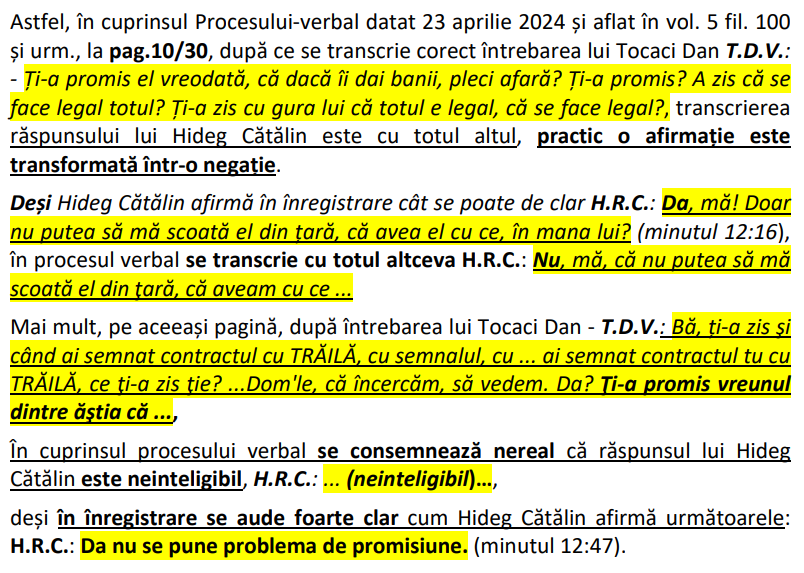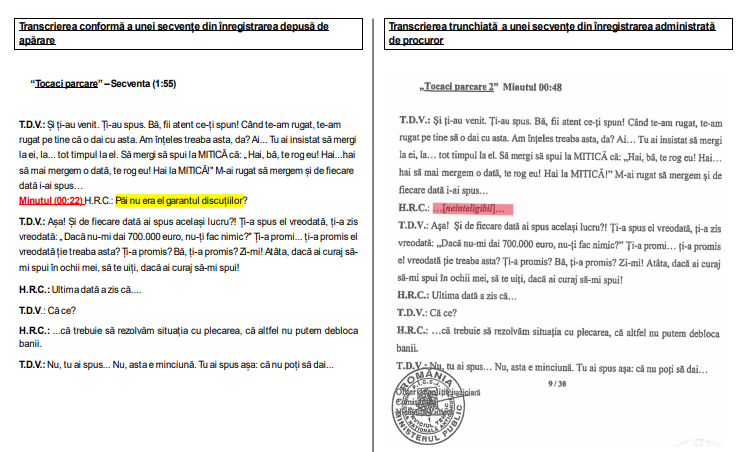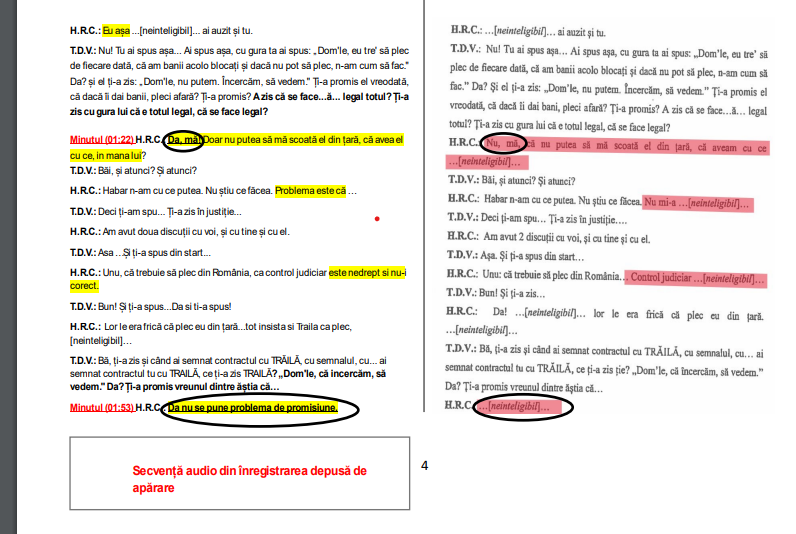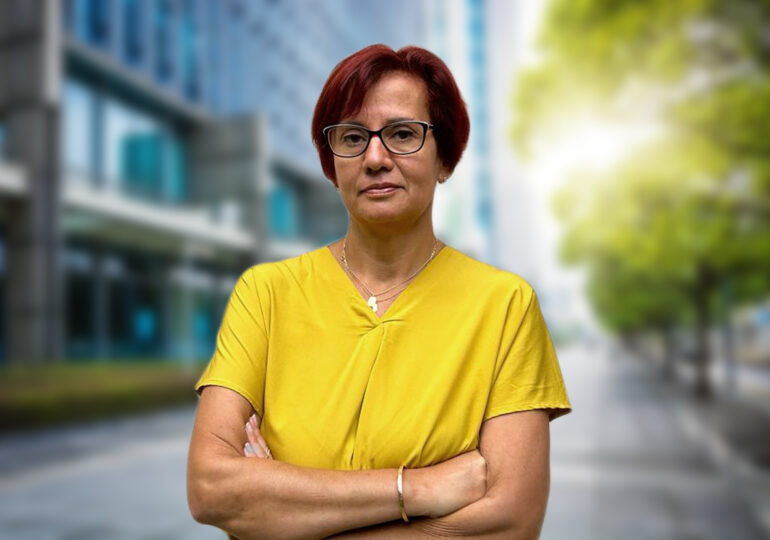The accusations made by General Florian Coldea against DNA prosecutor Mihaiela Moraru Iorga in the press release sent out Wednesday evening are of extreme gravity, especially because they are accompanied by audio evidence. The fact that in 24 hours, DNA has not had any reaction to dismantle them offers them an additional presumption of credibility.
What does General Coldea claim?
In short, that the evidence in the case where he is accused of influence peddling and money laundering has been grossly tampered with. More precisely, the transcription of the recordings submitted as evidence in the case is not only truncated, but the meaning of some statements is diametrically altered.
The example given in the press release is a discussion between Dan Tocaci and the informant Cătălin Robertino Hideg, proposed as a defense exhibit.

The press release (here in full) presents a comparison between the actual transcription and the one in the case file.


The audio file of the transcribed discussion is attached, which indeed confirms the existence of immense discrepancies in the prosecutor's version. It is hard to explain why in a piece of evidence used in court, a spoken YES turns into a written NO.
Florian Coldea also accuses that the recordings submitted by the informant have not been examined, so their authenticity is not certified.
The former deputy director of the SRI specifies in the press release that he has brought these issues to the attention of both the chief prosecutor of the DNA and the Judicial Inspection, as well as the Prosecutor's Office attached to Sector 1 Court, where he had already filed a complaint against the informant.
Intoxicating the judges
No one outside of the judges, with all the evidence in front of them, can say whether SRI generals Coldea and Dumbravă are guilty of the charges. Perhaps they are, but it is of extreme gravity the apparent and unchallenged attempt to intoxicate the courts to which incorrect transcripts are presented.
Beyond the manipulation of the process, such an act represents a defiance towards the judges whose supreme right to make the correct decision is implicitly taken away, because it can only be made based on correct evidence.
Then, why would you need to tamper with evidence if you have enough solid and correct evidence to prove the guilt of the accused?
It was also strange the removal without explanations of Judge Claudia Jderu from the High Court of Cassation and Justice (CAB) in the trial of the judicial control imposed on the two generals, after she ordered the accused to have access to the case files, access that had been denied to them until then.
The Controversies of Moraru - Iorga and Voineag
Lastly, the credibility of the accusations brought by General Coldea is reinforced by the professional, if not moral, profile of the case prosecutor Moraru Iorga and the DNA chief, Marius Voineag.
Many pages have been written about Ms. Moraru Iorga, whether we are talking about her status as an accused person sent to trial by the DNA and saved after the Special Section for Investigating Magistrates (SIIJ), where she already worked, withdrew the DNA's appeal against the preliminary chamber judge's decision to keep only the covers of her file.
Whether it was about the performance review at the SIIJ, where she failed to even produce a single indictment, according to official data from the High Court of Cassation and Justice.
Whether it was about how she became the head of Section I at the DNA, with the unanimous negative opinion (except for the minister who proposed her) of the CSM after disastrous performances.
But above all, when it came to the unimaginable abuses committed in the case of Sorina Săcărin, as found by the High Court of Cassation and Justice and for which, in fact, the Romanian state was ordered by the court to pay the Săcărin family compensation of 120,000 euros.
That Ms. Moraru Iorga would be willing to tamper with evidence should not surprise us at all. I would say that the opposite would surprise me.
As for Mr. Voineag, it is enough to recall that he became the head of the DNA after blocking the academic investigation of Nicolae Ciucă's doctoral thesis, suspected of plagiarism, by opening a criminal case and confiscating original documents for an offense prescribed for 15 years.
We see that the Voineag era at the DNA is one of routinely shelving cases, of repeated failures, and of cases about trivial matters.
Given that General Coldea is an extremely polarizing figure, and opinions on the justice system during the "binomial" period are not only crystallized but downright cemented and equally polarized, it is likely that some who are convinced of the existence of a parallel state and its abuses may consider that Mr. Coldea is being treated as the accused were treated when he was in office.
On the one hand, I have not heard of any of those who have accused abuses presenting evidence of such evidence tampering. On the other hand, those who complained back then should be the first to reject them now.
The silence of the DNA and PICCJ is deafening and worrying. Either General Coldea is lying, and this should be clearly stated, with evidence. Or he is right, and then Ms. Moraru Iorga should be directly subject to criminal and disciplinary investigation. Tertium non datur.

